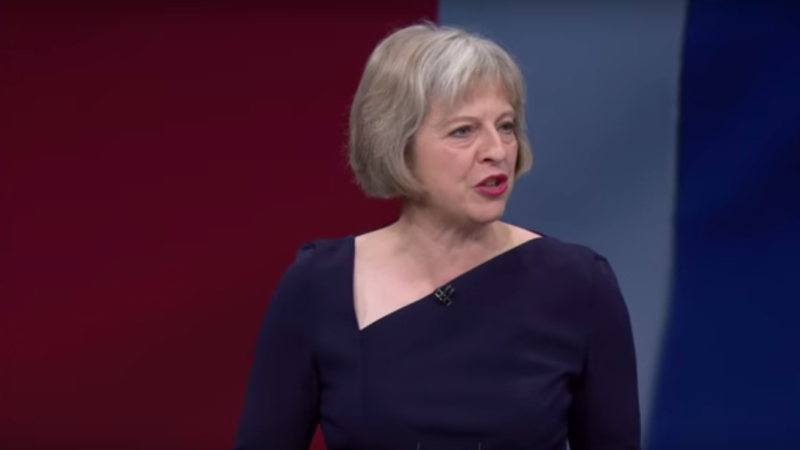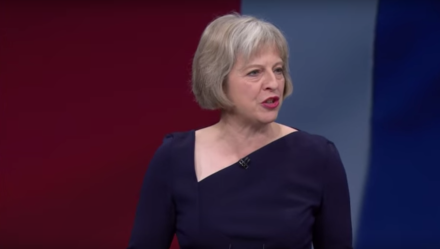

However we spin it, there is no doubt that the local election results last week were a significant blow for Labour. Tory leaning media outlets have since been rubbing their hands with glee and projecting massive wins for the Conservatives at the general election next month. This presupposes that voters are “stupid” and do not understand the difference between a local election and a general election.
A week is a long time in politics and there are still four of them to go before the general election. Labour has more than 500,000 members to mobilise and make a difference in its campaign especially as the Tories appear not to offer a real vision for the country. Theresa May’s repeated “strong and stable” mantra parroted by her Conservative colleagues has turned their election campaign into “no more than a slogan”, according to George Osborne in his first leader column as the editor of Evening Standard.
Labour, on the other hand, has announced a raft of popular policies. Corbyn has been out and about on the campaign trail speaking to ordinary voters. His refreshing style won him plaudits from the most unlikeliest of sources as The Spectator wrote, “In praise of Corbyn’s campaign”.
Unlike Corbyn, May looks awkward engaging with members of the public and has kept a distance from them. She has preferred to address party activists in a forest hideout in Scotland, a business hub in Leeds after workers went home and on a housing estate in Bristol where residents were not invited. May’s stage managed appearances have been described as “fake meetings” by Craig Murray, a former British ambassador.
May has made this election all about her in what has been described by commentators as the most presidential election in living memory. Placards held up by Tory party activists at her rallies do not talk about what the Tories are offering in this election, but their claim that May offers “strong and stable” leadership.
May herself seems unable to open her mouth without spluttering out “strong and stable” even where it does not make sense. When asked in a radio interview what a mugwump is, May’s response was: “What I recognise is that what we need in this country is strong and stable leadership”. May’s robotic utterances have earned her the nickname “Maybot” and made her a figure of fun on social media.
May borrowed the slogan from David Cameron who deployed it in the run up to the 2015 general election tweeting, “Britain faces a simple and inescapable choice – stability and strong Government with me, or chaos with Ed Miliband.” It is in fact Cameron who has given this country “chaos” by calling and losing the EU referendum, which has caused the biggest political crisis since the Second World War.
This was summed up rather eloquently by Ed Miliband when he tweeted recently, “Strong & Stable Gov 1 (2015):PM resigns, manifesto shredded, Scottish independence threat, election called, man buys shed. Fancy the sequel?”
Like Cameron, May’s talk of “strong and stable” leadership is an illusion. Repeating it endlessly does not endow her with those qualities. She has been described as a “pound store Margaret Thatcher“. Her record as a home secretary was disastrous. The Telegraph ran a story on its website “Theresa May is a great self-promoter but terrible home secretary” in the run up to last year’s Tory leadership contest.
May’s failings in the Brexit negotiations thus far shows that she is in fact presiding over a “coalition of chaos”. Her delusions and lack of knowledge and compromise have emerged from the disastrous dinnerwith Jean-Claude Juncker. This is why the EU’s chief Brexit negotiator, Guy Verhofstadt, has taken to trolling May over her robotic slogan when he tweeted, “”Any #Brexit deal requires a strong & stable understanding of the complex issues involved. The clock is ticking – it’s time to get real.”
Lynton Crosby, the mastermind behind Maybot, in trademark fashion plants one or two soundbites into voters’ minds, because he believes that they are unlikely to remember policies when they go into the polling station. Crosby failed spectacularly in his last assignment on Zac Goldsmith’s bid to be London mayor.
The Tories’ reliance on vacuous slogans while being light touch on policies offers Labour a perfect opportunity to make its case to the great British public. Labour’s policy to support the NHS has won the backing of NHS workers who have been expressing their support using the hashtag #publicduty on social media warning of their fears of a Conservative victory.
Corbyn received a standing ovation from hundreds of head teachers at a conference of the National Association of Head Teachers as he pledged to close the Tories’ £3bn funding gap in schools.
Labour is offering real hope in this election while Tories parrot meaningless soundbites. Labour has an opportunity to close the gap in opinion polls in the coming weeks with a strong grassroots campaign. It is resonating with young voters who are more likely to vote Labour in this election. Some 390,000 people aged under 25 have already registered to vote since this election was called. A recent poll has found that as many as third of people are considering to vote tactically to prevent May’s hard Brexit, which may favour Labour candidates up and down the country. A lot will happen between now and the general election and Tories may live to regret making this election campaign all about May’s empty slogans.




More from LabourList
The cost of living crisis is still Britain’s defining political challenge
‘Nurses are finally getting the recognition they deserve’
Letters to the Editor – week ending 15th February 2026